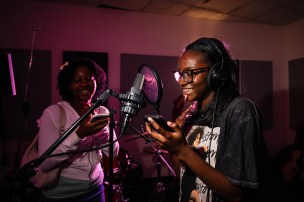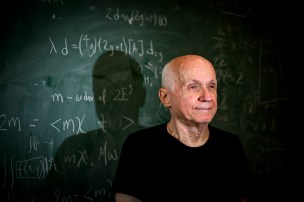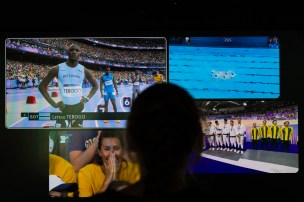Published on
‘Cancel culture,’ AI and SpongeBob: This entertainment law class is built for the social media age
Alex Roberts’ popular graduate course teaches broadly applicable legal concepts—accounting, the First Amendment, patent law—via the sort of frothy material found in People magazine or on TikTok.
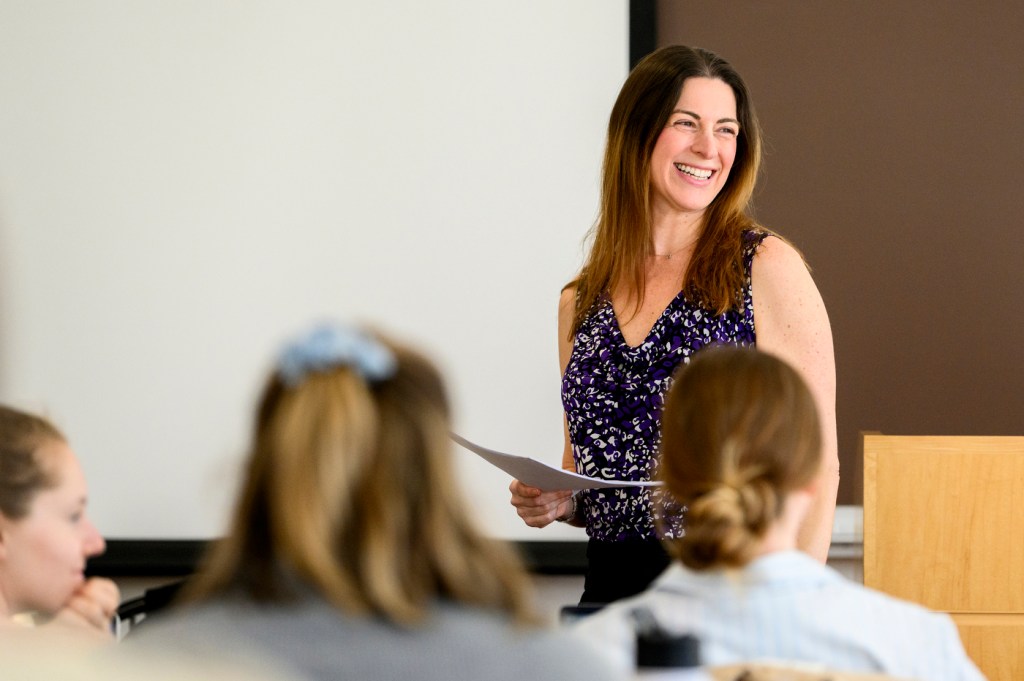
Sitting in on a Monday afternoon law school class in April, one might expect to encounter lectures on dusty appellate court decisions, the intricacies of the U.S. tax code, or determining mens rea. Alex Roberts is talking about Duke Caboom.
It’s the second-to-last meeting of LAW 7417: Entertainment Law for spring 2023, and professor Roberts, jointly appointed at the Northeastern University School of Law and the College of Arts, Media and Design (CAMD), is giving a short talk about trademark protections and how they apply to fictional characters in visual media. Caboom, from the 2019 Pixar film “Toy Story 4,” is a recent case study. The Canadian motorcycle stuntman action figure, voiced in the film by Keanu Reeves and marketed as a real-world toy, bears a passing resemblance to famed 1970s-era daredevil Evel Knievel—enough so, at least, that Knievel’s descendants sued Disney in 2020 for trademark infringement. They were unsuccessful; a judge dismissed the suit, factoring in Caboom’s Canadian-patriotic stylings (Knievel wore American flag jumpsuits) and hair color.
During the 12-minute lecture, delivered to end exactly at the class’s 3:45 p.m. dismissal time, Roberts also gives a rundown of disputes involving animatronic likenesses of Cliff and Norm from the TV sitcom “Cheers,” a Rapunzel Barbie doll and a shuttered Houston pop-up restaurant called the Rusty Krab—modeled too closely, per a judge’s ruling, on the Krusty Krab, the fictional underwater eatery in “SpongeBob SquarePants.”
The restaurant “was kind of shabby and embarrassing, and it didn’t make the characters look that good,” Roberts says. The rip-off, she continues, was egregious enough that it didn’t matter that there wasn’t much precedent for trademarking fictional restaurants. “It isn’t really what we think of as use, as a trademark. [Still] the court was like, yeah, that’s fine. Everybody knows what this is.”
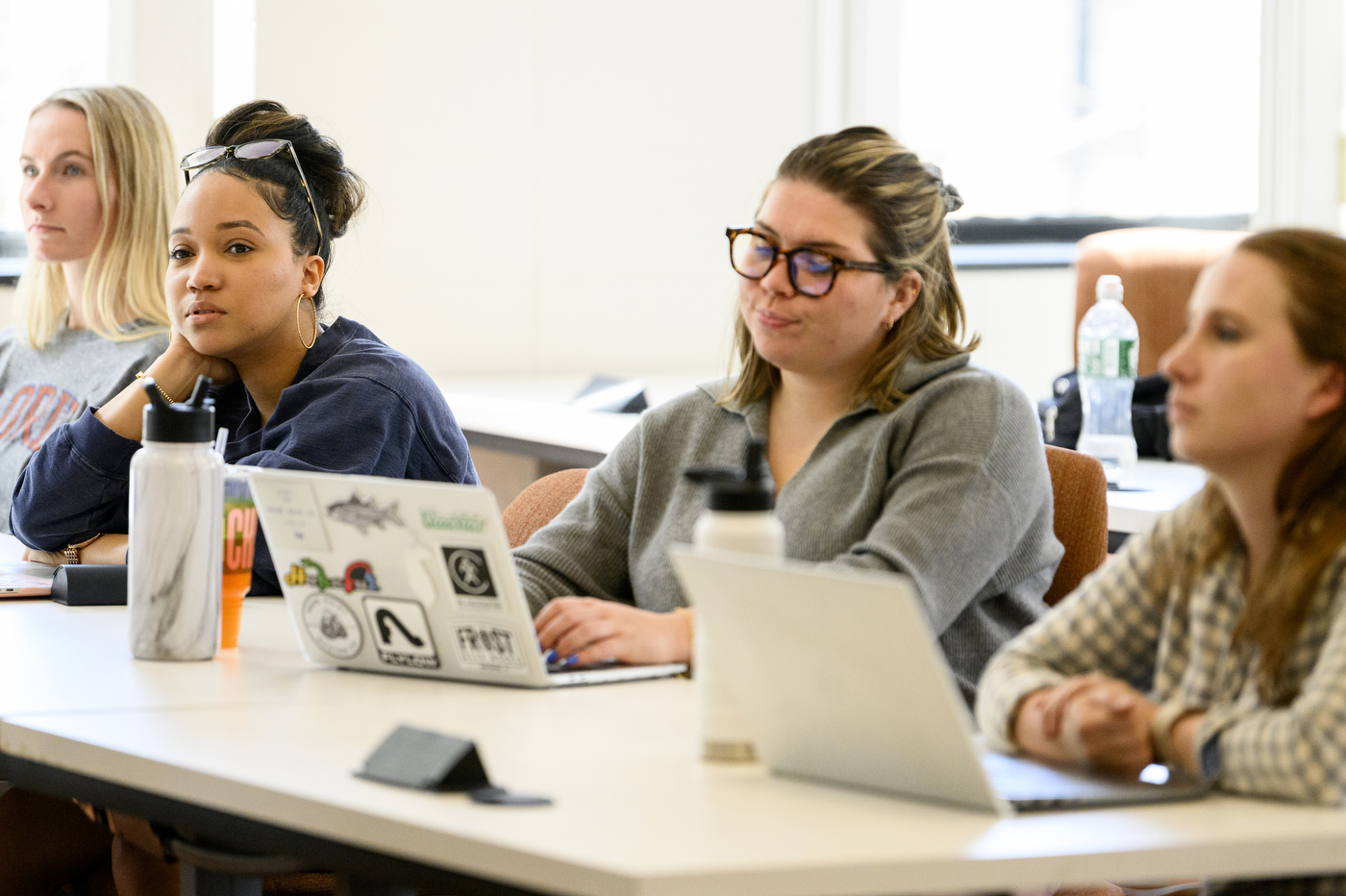
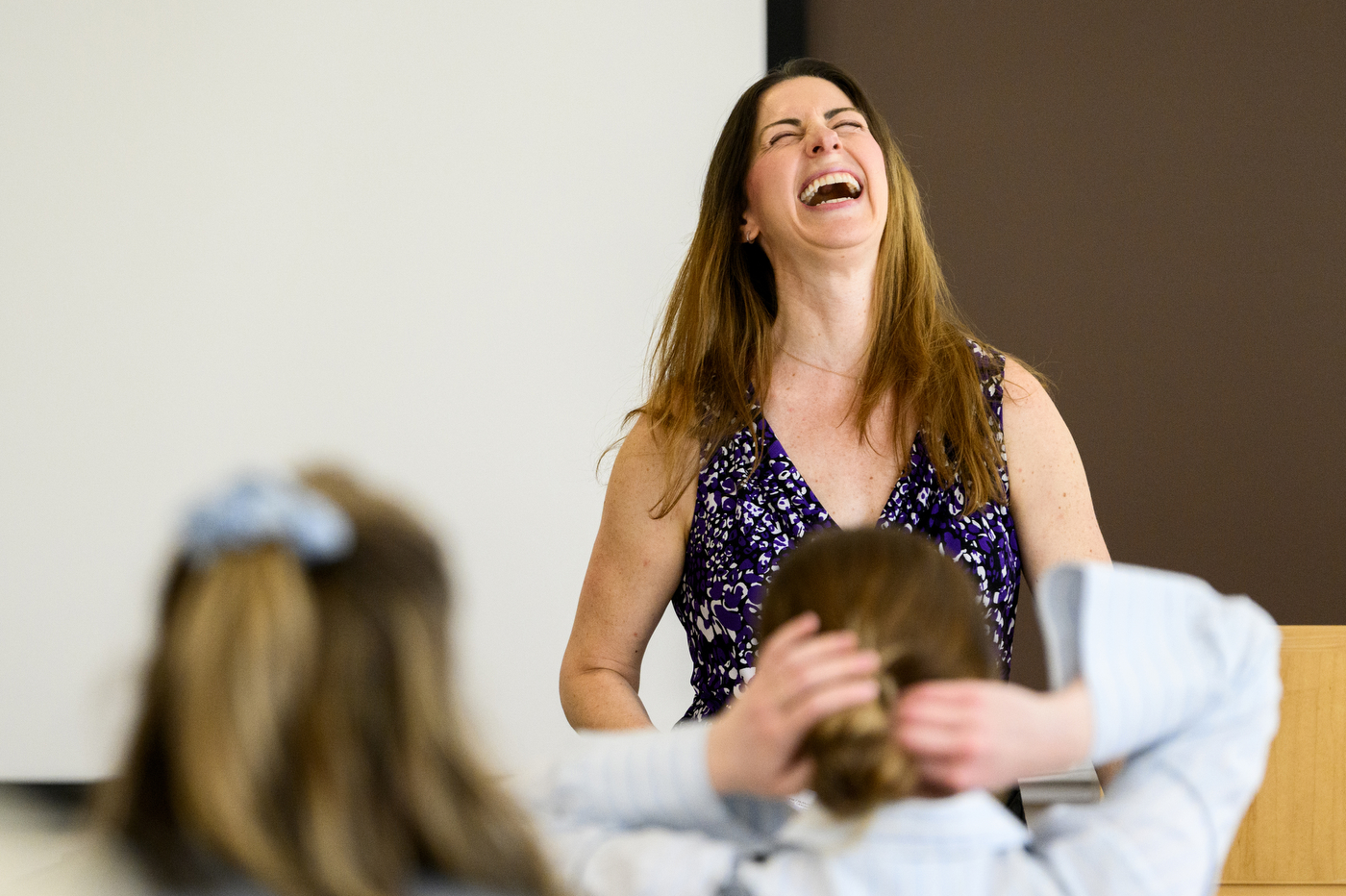
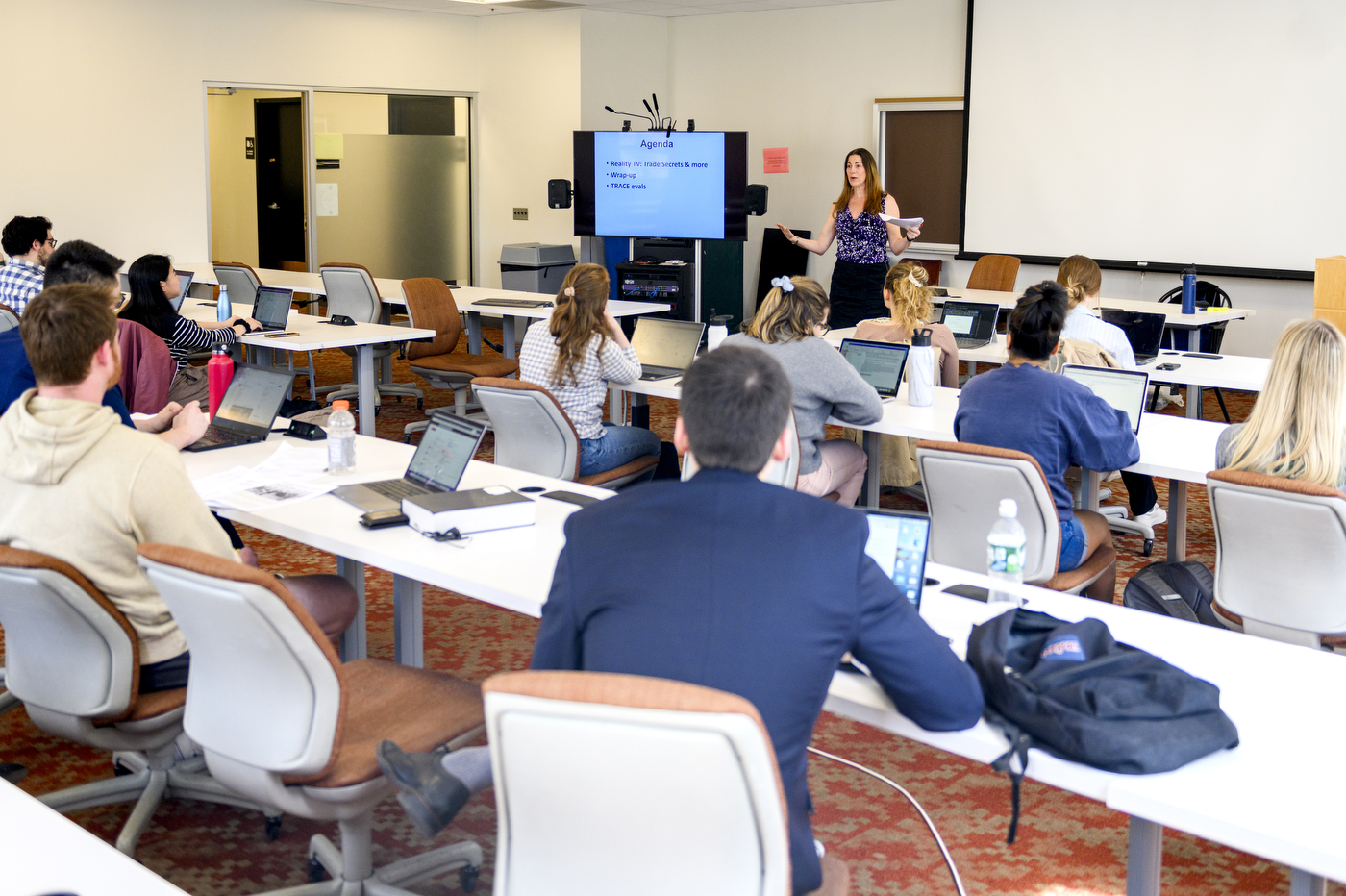
Earlier in the class period, students gave presentations on legal issues in the music industry, including streaming royalties for artists, sampling, and an extremely timely rundown of Ticketmaster and antitrust laws. Taylor Swift came up in all three. Even though it was a presentation day, it was representative of how Roberts runs the class.
“Students lead the discussions,” says Lacey Allen, the second-year law student who gave the Ticketmaster talk. She wants to work in the music business and has an internship with a record label in Manhattan this summer. “That’s different than what you get in a lot of law school classes.”
Students also steer the content. “I plan to build this course in part around your interests,” Roberts’ class syllabus reads, “so I hope you will not be shy about expressing those interests in class or outside of it.”
The course is further dictated by what’s going on in the culture at large at the time. The spring 2023 syllabus covers the legal ins and outs around “cancel culture,” reality TV trade secrets and personas, payment of college athletes, social media influencers, sports betting and AI-generated art (an evolving intellectual property issue).
Topics also come from Twitter, where Roberts finds inspiration for cases to discuss, and where she also posts about funny trademark litigation. “just checked my closet but it does not appear I can don a henley tomorrow when I teach this case about Don Henley vs. Don Henley’s Henley,” she tweeted recently, citing a 1999 suit between the Eagles lead singer and the department store chain Dillard’s.
Offered once a year in the spring to law students in their second or third year, Entertainment Law is a hugely popular course at Northeastern University School of Law; this semester, the class has 23 students, and Roberts says there were 20 or so on the waitlist. Its appeal lies in Roberts herself, who students describe as enthusiastic, engaging and “super, super kind,” in Allen’s words. But it also lies in the delivery of broadly applicable legal concepts—accounting, First Amendment issues, patent law—by way of the sort of frothy material you’d find in People magazine or on TikTok.
Roberts thinks the class’s responsiveness to the culture helps it reflect the ethos of inclusion, fairness and social justice that pervades Northeastern’s law school. Entertainment Law has covered topics like the rise of intimacy coordinators on movie sets (an outgrowth of the #MeToo movement) and the “Blurred Lines” case, in which Marvin Gaye’s estate sued the writers of the 2013 pop hit for lifting ideas from the late soul singer’s 1977 song “Got to Give it Up.” That case prompted lots of discussion, contemporaneously and in the class, about white artists appropriating musical concepts from Black artists, and who gets the credit.
“There’s been a lot of movement across all law schools to push students to think more about systemic racism and structural inequalities,” Roberts says in an interview in her office after class. “At some places, you might face some resistance to that. Here, it is not only welcomed but expected. Students are enthusiastically participating in those conversations, and tying legal questions to these broader social questions.”
Would-be attorneys don’t have to aspire to become Hollywood agents or work for a record label to find the class useful. Joe Tobin, a second-year law student with a teaching background, is interested in working with startup companies on helping them get off the ground—especially small outfits that may not be able to afford a large legal team.
“It gave me a lot more understanding of intellectual property and non-disclosure agreements, and the things that can be hidden inside those contracts,” he says. He gave the presentation on streaming royalties, capping his talk with a rundown of prospective payment structures that could better benefit artists with smaller followings on Spotify or Apple Music.
Entertainment Law didn’t always have such a flexible format. When Roberts, who came to Northeastern in 2022, first taught the course at the University of New Hampshire, it looked a lot more like a traditional law school class. Most classes typically use a book of relevant past cases to pre-determine the syllabus.
“That works really well in some classes,” she says. “I did it that way the first time, and I did not like it. I felt constrained, and like a lot of the cases were outdated. It felt like it would be a lot more fun to teach of-the-moment cases. So that was the last time I used a book.”
She notes, also, that the entertainment industry has a high proportion of legal disputes that settle out of court; only studying cases that went to trial isn’t representative. So she uses a mix of materials: published cases alongside complaints that are filed and never go anywhere, press coverage, and routine “transactional documents” including contracts, cease-and-desist letters, and expert witness reports.
“A lot of lawyers don’t go to court at all,” Roberts says. “I felt like that would round out people’s understanding of what entertainment law entails, and also give them some good exposure to the [non-litigation] side of things.”
A centerpiece of the class, then, is not a mock trial, but a mock negotiation. This semester, students were divided into teams representing former NBA star Jeremy Lin and book publisher Scholastic, which was looking to buy the rights to his life story. Tobin was on the publisher’s side. “We were told to focus on the royalty payments, [the rules around] children’s books, and the availability to publish worldwide.” A sticking point was that Lin’s “team” wanted to reserve the life rights for overseas publishers, owing to the basketball player’s popularity in Asia. The students often cite the exercise as a highlight of the class.
“I think the students get a lot of confidence from it; they get exposed to what a negotiation feels like if they haven’t done it before,” Roberts says.
Entertainment Law comes back on the course schedule in spring 2024. Until then, Roberts is bringing her light touch and eye for the current moment elsewhere around Northeastern. She continues to get ideas from Twitter. Later in the week, she moderates a discussion about the limits of parody protections when it comes to products—using the example of novelty dog toys that mock famous brands, like Chanel and Jack Daniels. She also teaches a CAMD undergraduate course about trademark issues in the music industry, including disputes about band names. Can former members of the Beach Boys tour while still calling themselves the Beach Boys? Can ABBA sue a tribute band?
“There are some juicy questions,” she says.
Schuyler Velasco is a Northeastern Global News Magazine reporter. Email her at s.velasco@northeastern.edu. Follow her on Twitter @Schuyler_V.

